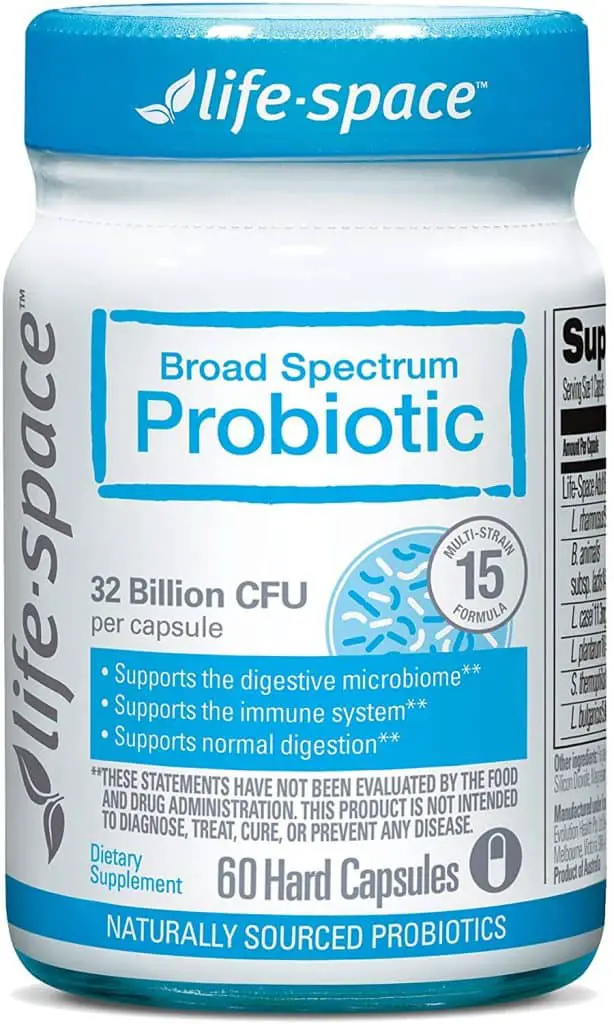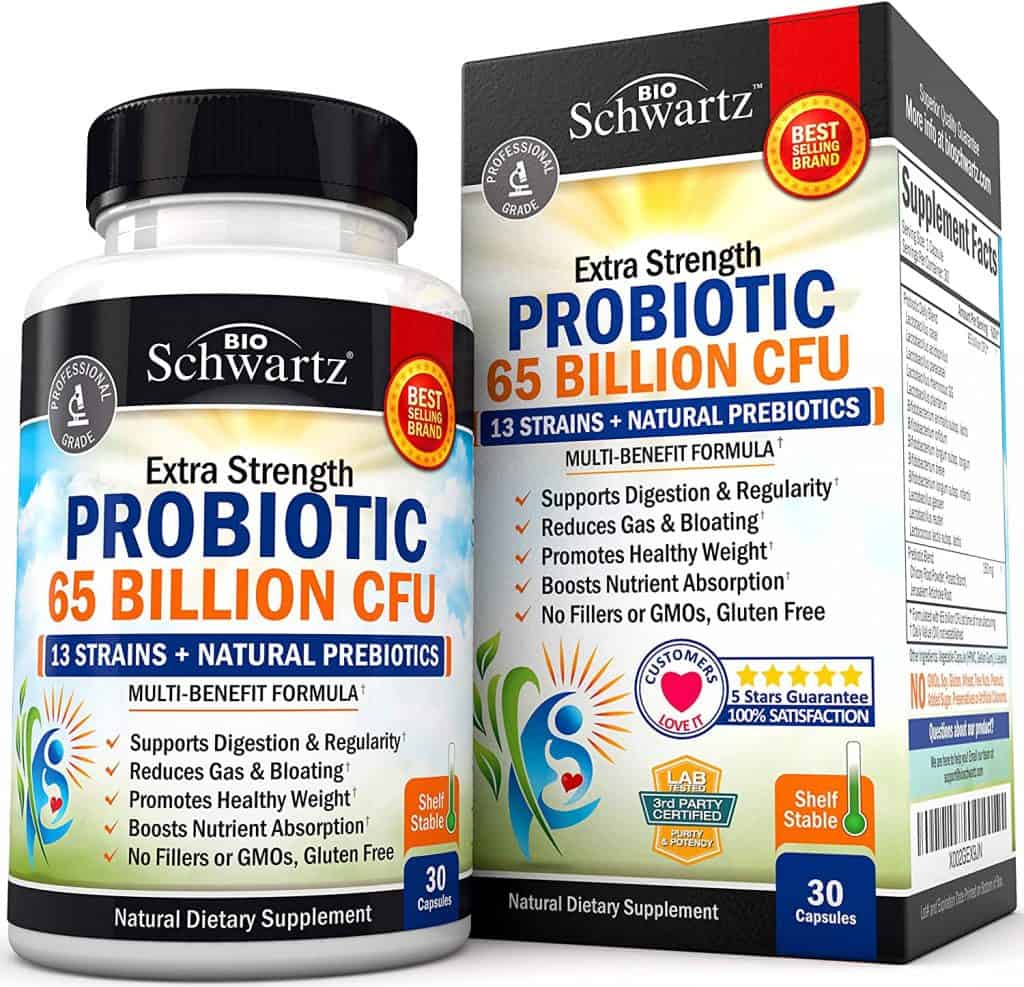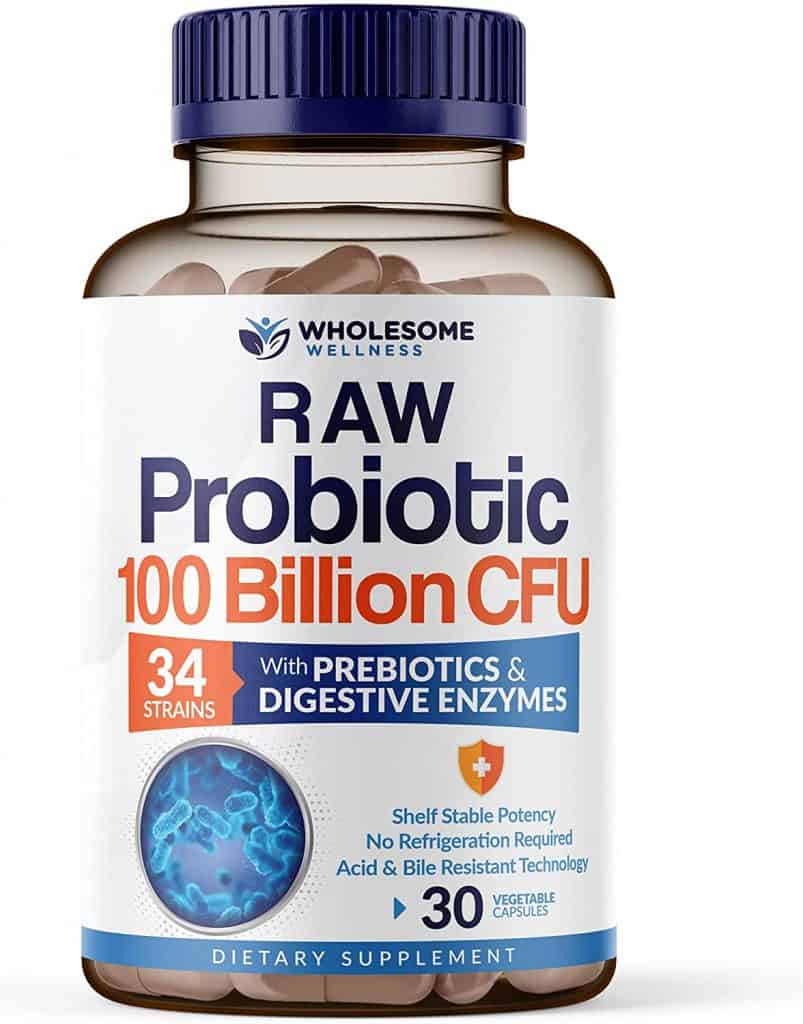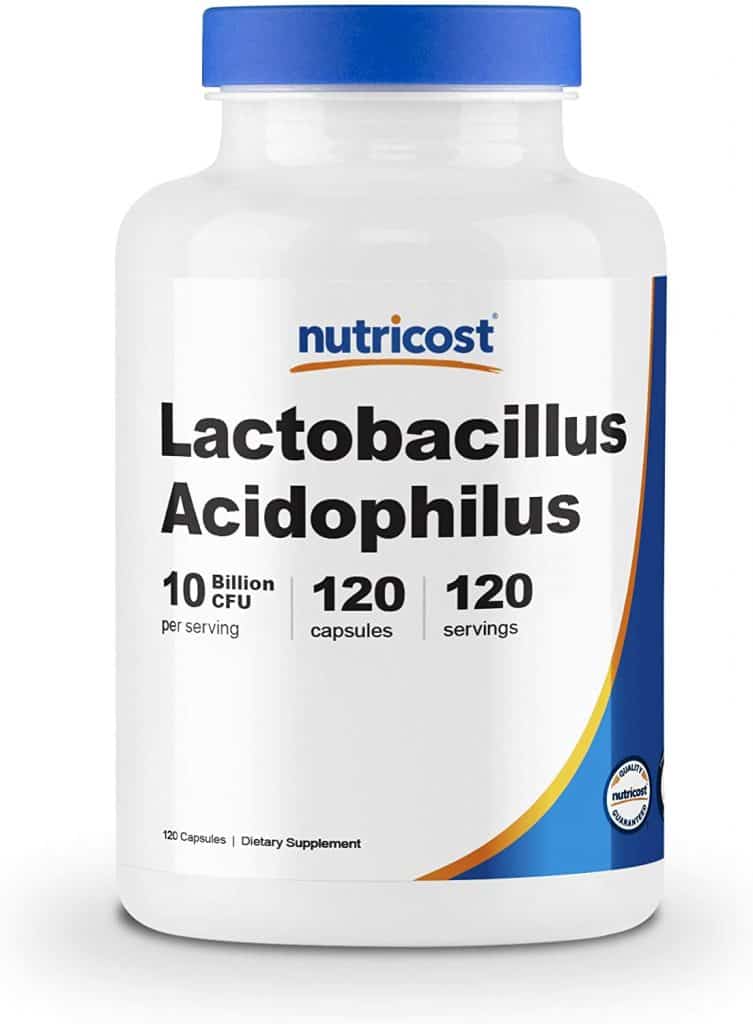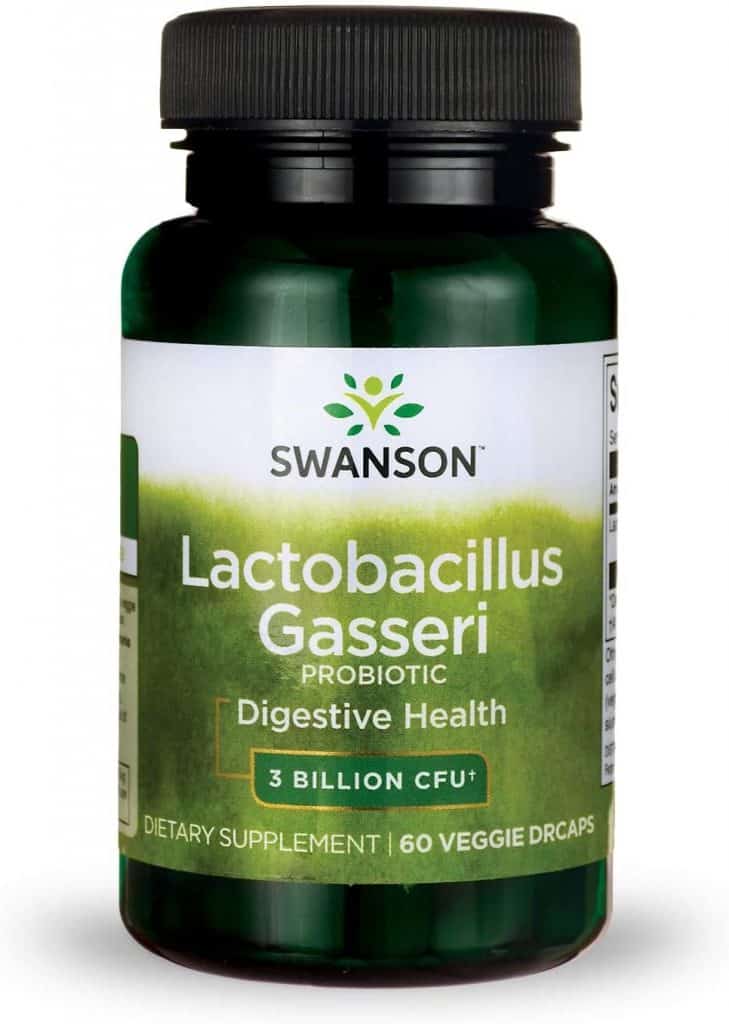The Best Probiotics for Autoimmune Disease – Reviewed
While it’s true that experts still don’t know what exactly causes autoimmune disease, some studies are suggesting that the answer might lie with the microbial imbalance in the human gut. This means that even though it might not be an outright cure, taking the best probiotics for autoimmune disease might be one of the most effective remedies we have today.
That, however, doesn’t mean that every single probiotic bottle you come across will do the trick. Some are formulated using a probiotic strain that specifically targets autoimmune disease in our body. Let’s take a closer look at some of the best probiotics for autoimmune disease on the market today.
Best Probiotics for Autoimmune Disease
Here are some of the best probiotics for autoimmune disease on the market today:
1. Life-Space Premium Broad Spectrum Probiotics
Manufactured by one of the leading brands in the field, this Life-Space Premium Broad Spectrum Probiotics has nothing but the best and highest possible quality ingredients. These ingredients are all naturally sourced and feature no artificial flavors, colorings, or eggs.
Furthermore, it’s both gluten and dairy-free, which means that it’s safe for people who have lactose intolerance and celiac disease to take.
Designed with a highly potent formula, this probiotic has 32 billion CFU and about 15 strains for every capsule. One of the leading culture strains is Lactobacillus and L. rhamnosus GG, which do not help with an autoimmune disease but also helps to improve the strength of your overall immune system. It also supports normal digestion as well as promotes increased nutrient absorption for better health.
One of the most outstanding features of this probiotic supplement brand is that they use freeze-dry technology which keeps the cultures dormant until you consume them. As such, these capsules don’t need refrigeration and have a rather long shelf-life.
Pros
- Comes in capsule form
- Affordable
- Made using the highest-quality ingredients
- Freeze-dry technology increases capsule shelf-life
- Good for autoimmune disease
Cons
- Some people don’t like taking their probiotics in capsule form
2. Bio Schwartz Probiotic 65 Billion CFU
This Bio Schwartz Probiotic 65 Billion CFU is designed to bring you 65 billion colony forming CFUs with 13 powerful probiotic strains. One of the leading ones is Lactobacillus in every single serving. These natural colony-forming prebiotics are specifically chosen to help support excellent digestive support, improve nutrient absorption, and promote the natural balance within your gut. It’s also formulated to help ward off the occasional side effects of taking probiotics, including bloating, gas, and constipation.
This probiotics option is doctor-approved and is designed to be shelf-stable. Not only does it keep for a rather long time without refrigeration, but it also has a patented delay release formula that means it can survive your stomach acids until it reaches deep within your gut before deploying. This delay system means that this probiotic can go as far as reaching your large intestines providing your gut with excellent, well-rounded coverage.
While professionals formulate every probiotics option on this list, what sets this one apart is the fact the manufacturer has gone a step further and put it through purity testing. That means that every bottle is effective and allergen-free and has been put to the test by an independent third party to ensure that you are getting nothing but the best option. In addition, the bottle is non-GMO, gluten-free, peanut, and wheat-free.
Pros
- High-quality ingredients
- Supports digestive health
- Reduces bloating and gas
- Promotes a healthy immune system
- Promotes nutrient absorption
- Contains no GMOs, fillers and is gluten-free
Cons
- Comes in capsule form
3. Wholesome Wellness Organic Probiotics 100 Billion CFU
Formulated with 100 billion CFUs, 34 different strains, and designed to be shelf-stable, this Organic probiotic 100 Billion CFU is by far one of the most potent probiotics on this list. The manufacturer says that they use high-quality ingredients to create one of the best probiotics supplements on the market. The thing about their probiotics is that they work, and the manufacturer offers a money-back guarantee to show how confident they are in their product.
This option has nothing but 100% raw probiotics. It is doctor-formulated to include organic prebiotics as well as digestive enzymes based on expertly managed clinical testing. These probiotics are non-GMO and formulated to promote excellent gut health, give you relief from bloating, improve your immune system, relieve yeast and help with your weight-loss efforts.
It’s the perfect solution for looking for something that gives them an excellent defense against autoimmune diseases. It’s even suitable for pregnant women.
Pros
- High-quality ingredients
- 34 strains
- 100 billion CFUs
- Doctor tested
- Affordable
Cons
- Comes in capsules only
4. Nutricost Lactobacillus Acidophilus 10 Billion CFU
Lactobacillus is one of the main bacteria strains that help alleviate autoimmune symptoms in people. It’s, therefore, a good idea to get yourself probiotics that mainly focus on that probiotic strain, very much like this Nutricost Lactobacillus Acidophilus 10 Billion CFU. Formulated with 10 billion CFUs in every single capsule, this bottle of probiotics is not only good for the health of your gut but also in fighting any autoimmune symptoms that you might be suffering from.
This is a highly friendly and beneficial bacteria option that promotes healthy intestinal flora, promotes excellent gut health, and boosts your immune system. It’s non-GMO and gluten-free, which makes it safe for people who have celiac disease. It’s also manufactured in an FDA-registered facility which means that you are getting a product that is produced under the strictest and highest of standards.
Pros
- 10 billion CFUs in every capsule
- Lactobacillus is the main strain
- Non-GMO
- Gluten-free
- Produced under very strict standards
- Very affordable
Cons
- Comes only in capsule form
5. Swanson Lactobacillus Gasseri Probiotic
Every single probiotic option on this list is formulated to also aid in digestion and improve gut health. This Swanson Lactobacillus Gasseri Probiotic, however, goes a step further. It has the “good” microorganisms specifically geared towards promoting microbial balance in your digestive tract while also actively reducing the bad bacteria that cause conditions such as H. Pylori.
Another thing about this particular probiotic supplementation is that it can boost fat metabolism, making it one of the best options for people who have an autoimmune disease and are working toward a weight loss goal. With 3 billion CFU in what is essentially a veggie capsule, this is one of the best options for people who are keen on being vegan and improving their gut health through probiotics.
The 3 billion CFUs form what are essentially fungal cells to ensure that the effects of these probiotics reach deep within your gut microbiome to help promote healthy flora and improve your overall immune system.
Pros
- Formulated to promote microbial balance in the gut
- Good for weight loss
- Comes in veggie capsules
- Highly affordable
- 3 billion CFU
- Manufactured by a company that has been around for decades and is a trusted brand
Cons
- Veggie capsules aren’t everyone’s cup of tea
What is Autoimmune Disease?
Autoimmune disease is an autoimmune condition that causes your immune system to attack the organs in your body as opposed to guarding them. In people without an autoimmune condition, the immune system is one of the best defenses a person has against viruses and bacteria.
Whenever your immune system determines that a certain “invader” is a threat to your health, it sends out white blood cells to go and attack, even eliminate that threat, thus protecting you from diseases.
Your immune system is designed with an internal radar to help it differentiate between potentially threatening foreign bodies or orgasms and your own immune cells. Unfortunately, in people with autoimmune diseases, this internal radar is faulty, and in many cases, their immune system continuously attacks their own cells by mistake.
In this case, the autoimmune disease causes their immune system to mistakenly attacks parts of their bodies such as their knees, joints, skin by releasing autoantibodies and sending them out to attack otherwise healthy immune cells.
Most Common Types of Autoimmune Disease
Autoimmune diseases come in many different forms. However, here are some of the most common types of autoimmune disease:
Type 1 Diabetes
In this case, the autoimmune disease causes the immune system to attack insulin-producing cells in the patient’s body. This results in high blood sugar levels, which can damage blood vessels, kidneys, the heart, and other organs.
Rheumatoid Arthritis (RA)
This is where the autoimmune disease causes the immune system to attack the joints. This typically inflames them, causes redness, soreness, stiffness, and pain. You might be wondering what the difference between Rheumatoid arthritis (RA) and Osteoarthritis is and if they are both caused by autoimmune disease.
Osteoarthritis isn’t the same as Rheumatoid arthritis (RA); the former is most common in aging people and is typically associated with growing old, while the latter can start at any time, even as early as 30 and isn’t necessarily associated with growing old but rather with autoimmune disease.
Psoriasis
In people without autoimmune disease, skin cells grow and shed as soon as they are of no more use to the individual. However, with an autoimmune disease, these skin cells multiply way too quickly and build up, causing red patches that can be inflamed.
These inflammations appear as silver-white scales. In many cases (at least 30%), people who have psoriasis also experience stiffness, swelling, and pain in their joints. When that happens, it’s called psoriasis arthritis.
Multiple Sclerosis
There’s a special sheath known as the “myelin sheath” that is tasked with protecting nerve cells in your central nervous system. If this sheath is damaged, as it would be when someone has multiple sclerosis, the speed with which messages are passed between your brain and your spine is significantly slowed. This typically leads to issues such as physical imbalance, numbness, walking problems, and general weakness.
While this disease comes in many different forms and progresses slowly, a study shows that about 50% of all people who develop MS will need walking assistance within 15 years of developing the disease.
Inflammatory Bowel Disease
Also referred to as IBD, this condition causes inflammation in the lining of the patient’s intestinal wall. Like most autoimmune diseases, IBD affects different parts of the digestive tract.
As you can see, autoimmune disease comes in many different forms, and while there is medication to manage most of the symptoms caused by this disease, there is no cure in many cases. The best you can hope for is finding a way to minimize the severity of the symptoms and help prevent the chances of the disease progressing.
Can Probiotics Help with Autoimmune Disease?
Yes! Since a probiotic supplement is typically designed to help positively affect the overall flora in your gut (create a suitable balance within your intestinal mucosa) and positively influence systematic immune responses, using a probiotic supplement can help treat an autoimmune condition. At the very least, it can help alleviate some of the more severe symptoms related to an autoimmune disorder or condition.
Whenever you talk about probiotics, the most common probiotic strains used in any of the readily available products are Lactobacillus and Bifidobacterium. However, studies suggest that Lactobacillus is the most effective strain when it comes to combating autoimmune disease. That’s why every probiotic option in our list of “best probiotics for autoimmune disease” contains this strain.
While it’s true that there isn’t a one-size-fits-all solution when it comes to probiotics, it’s also true that using them is an excellent way to give yourself a head start in your fight against autoimmune disease. You are, however, going to have some experimenting to do before you find the right kind of probiotics for your specific type of autoimmune disease.
The list above gives you an idea of where to start and what to look for in your research. Any one of the options here works well with people who have an autoimmune disease and people who are keen on maintaining a healthy gut and healthy weight.
Disclaimer: While our team of medical expert writers makes every effort to convey the correct, relevant, and most up-to-date information, you should never disregard advice given to you by your medical practitioner or delay seeking medical assistance because of something you have read on Gutsify or received in correspondence from Gutsify. Please refer to our Terms and Conditions.


